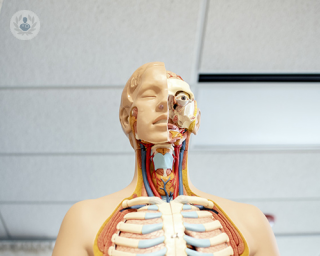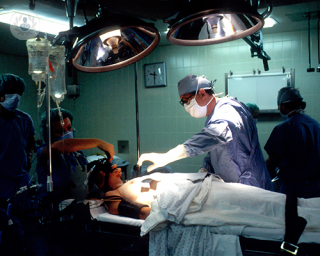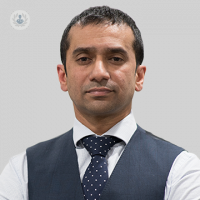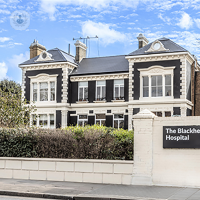Throat cancer
Professor Stuart Winter - Otolaryngology / ENT
Created on: 11-13-2012
Updated on: 05-20-2015
Edited by: Jay Staniland
What is throat cancer?
Throat cancer, also known as pharyngeal cancer, is a form of cancer characterised by the presence of malignant tumour cells in the throat. There are various types of pharyngeal cancer, which include:
- Nasopharynx cancer – when it affects the upper part of the throat behind the nose
- Oropharynx cancer – when it is located in the middle part of the throat
- Hypopharynx cancer – when the cancer is in the lower part of the pharynx
- Laryngeal cancer – affects the larynx (the voice box)
- Oral cancer - affects the tongue and mouth.
There are also another two types of throat cancer:
- Squamous cell carcinoma – the most common form of throat cancer which affects the cells lining the throat.
- Adenocarcinoma – affects the glandular cells, but this is a rare form.

What are the symptoms of throat cancer?
The symptoms of throat cancer depend on the location and extent of the tumours, but in all cases a lump (nodule) may appear in the neck. Some common signs and symptoms can include:
- earache
- pain or difficulty when swallowing
- sore throat
- weight loss
- a cough or feeling like you always need to clear your throat
- changes in the sound of your voice
- blood in the saliva
- dysphonia, also known as hoarseness
- non-healing mouth ulcers.
What causes throat cancer?
Pharyngeal cancer, like all types of cancer, is caused by abnormal cell mutation and its reproduction. There are certain risk factors that can increase the chances of this type of cancer developing. In the UK, these are classified as:
- smoking
- excessive alcohol consumption
- HPV
Other less common risk factors include:
- exposure to asbestos
- poor diet
- chewing tobacco
Can throat cancer be prevented?
Specialists recommend quitting smoking. It is also advisable to reduce the consumption of alcohol and follow a healthy lifestyle, which consists of eating properly and doing physical exercise on a regular basis.
How is throat cancer treated?
Treatment for throat cancer varies according to the site, size, and the extent of any spread.
Broadly speaking, the main treatment options are surgery or radiotherapy. The addition of chemotherapy may be advised, but chemotherapy alone will not cure the cancer.
If diagnosed early enough, throat cancer has a good survival rate.
If you are concerned about throat cancer, you can book an appointment with a specialist ENT surgeon here.













